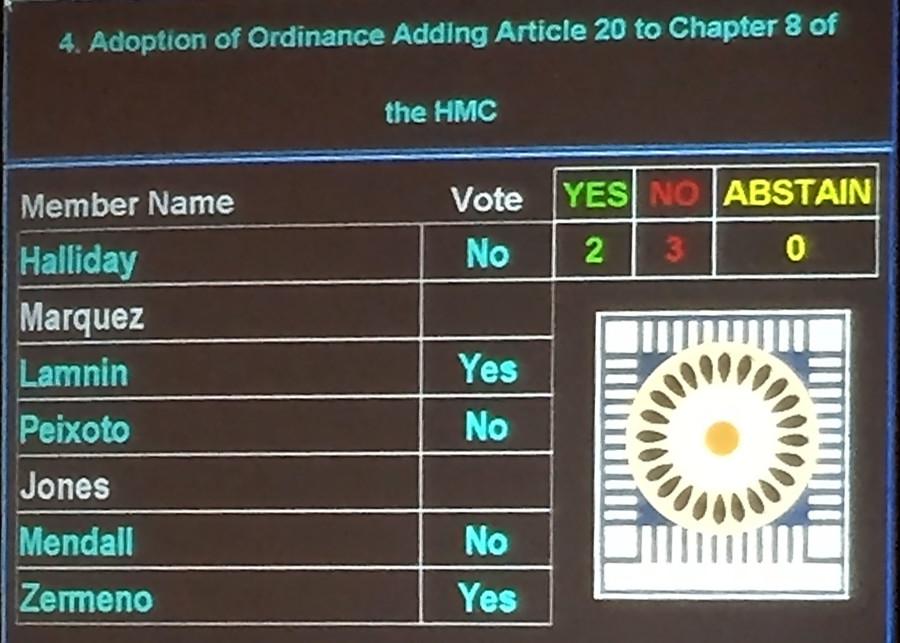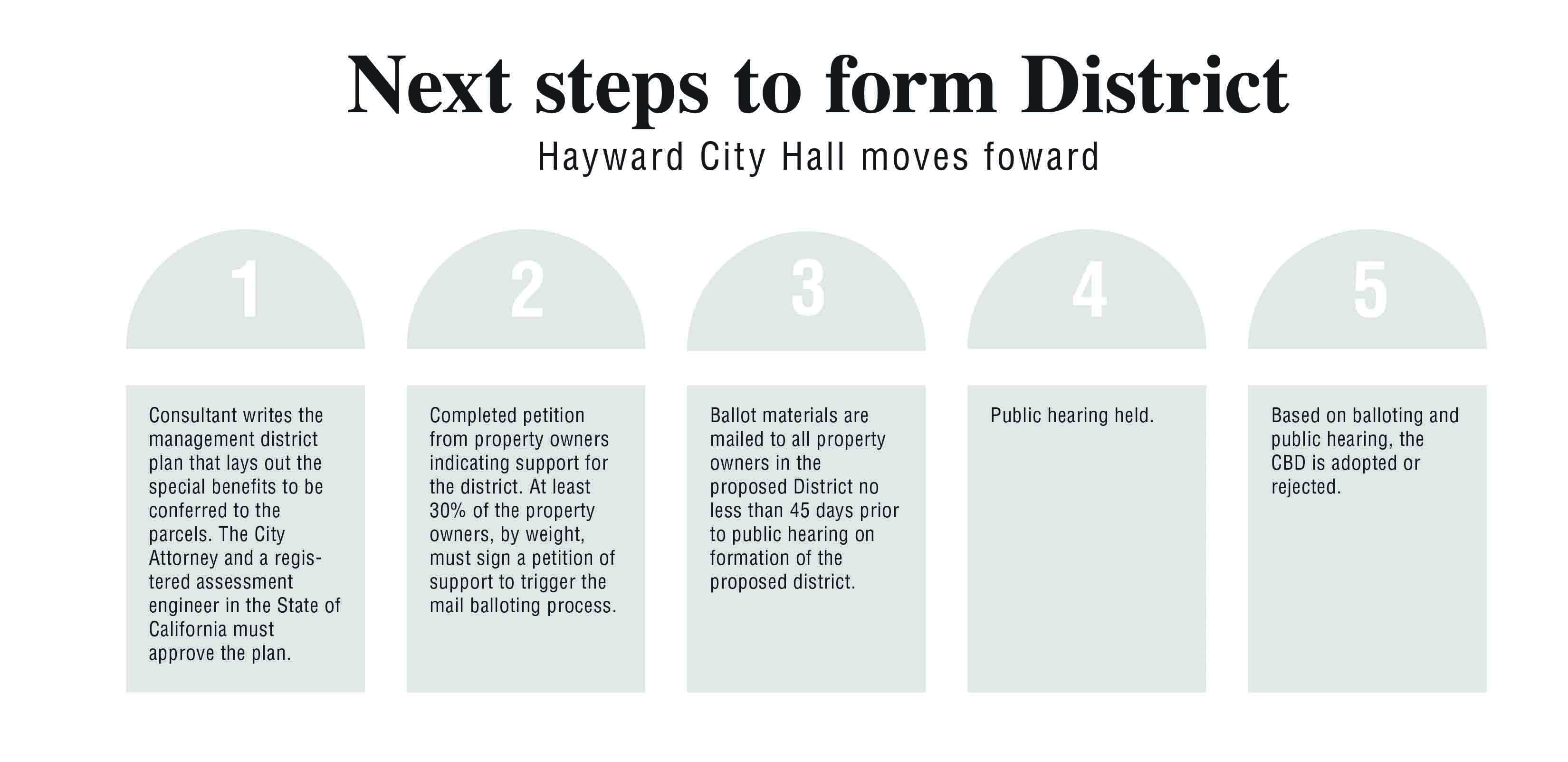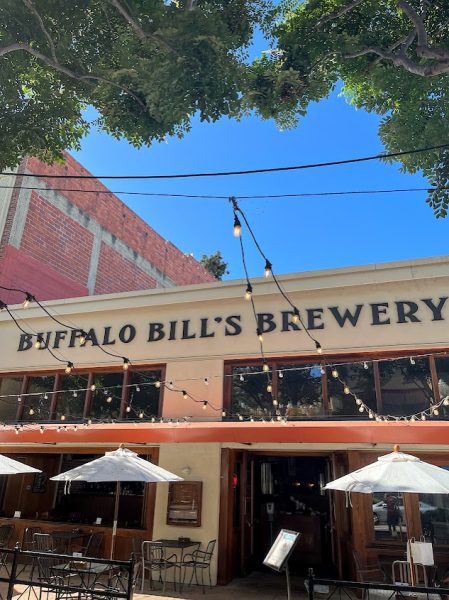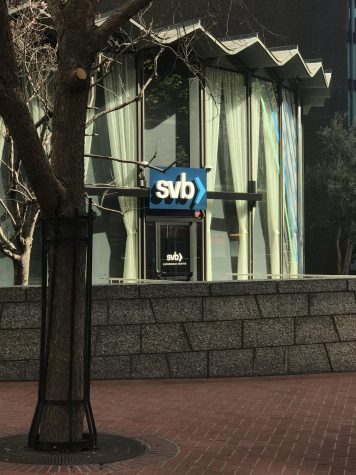New district plan shows potential for Hayward
March 19, 2015
After complaints from local property owners, the Hayward City Council voted in favor of an enabling ordinance with an amendment that could potentially create a Community Benefit District.
Assistant City Manager Kelly McAdoo introduced the enabling ordinance, which provided guidelines for the creation of a CBD, a locally modified Property and Business Improvement District in Hayward.
According to McAdoo, after the dissolution of the state Redevelopment Agency in 2002, the city sought new ways to improve activities. One of the solutions was to create a CBD, and the non-profit, nonpartisan public policy institute and think tank New America was brought in to explore the possibility.
The Hayward city staff estimates that revenue from the CBD would be between $500,000 – $700,000 annually.
If established, property owners would pay an assessment to the CBD under the ordinance. The assessments would be used to provide the districts with special benefits on top of the general benefits the city provides such as street sweeping and road paving.
Special benefits would be a variety of services such as additional sidewalk cleaning, graffiti abetments, street furniture, marketing programs, and event production, according to Frank Holland, Community and Media Relations Officer of Hayward.
According to the proposal, the CBD would operate as an independent 501(c)(3) and be controlled by a board of directors made up by property owners within the district.
The next steps would be the adoption of the ordinance, and then investment into outreach and education to receive a 30 percent approval of property owners by weighted support for a ballot.
The district can then only be formed if 50 percent plus one of the valid returned mail ballots sent to business property owners – weighted according to the percentage of each voter’s share of the total assessment – cast a ballot in favor of the district.
Weighted property assessments are based on lot size, linear frontage, and building size in the potential CBD, which City Hall is estimated to own 20 percent of.
During the city council meeting on March 17 the ordinance met opposition from Hayward business owners.
Property owner of Ace Hardware on B Street, Mona Diamantine pointed out that the support needed was 30 percent of the assessments proposed, not 30 percent of the property owners.
“The process is disproportionately weighted in favor of the City and BART who currently own a nearly 23 percent of the property within the proposed CBD,” Diamantine said. “Only an additional 7 percent of the weighted property owners would be needed to reach the 30 percent threshold.”
According to the Supplemental Information document regarding Community Benefits Districts, the ordinance requires the Council to vote in favor of the petition before it is allowed to move forward.
“Without the enabling ordinance, I really don’t know on what basis we expend staff time beyond this because we spent quite a bit of time to get to this point,” said City Manager Fran David.
Before voting on the ordinance, Council Member Sara Lamnin motioned to increase the weighted petition threshold to 50 percent for the adoption of the ballot to “show the city’s willingness to have the process be inclusive with the property owners.”
David pointed out that lower threshold is also needed to dissolve the district; so increasing the threshold would also increase the vote requirement to dissolve the district in the future.
The motion carried 4-1 and the ordinance returned to the council on March 24 where it was amended and discussed further.
Correction
The previous version of this article in The Pioneer on March 19, 2015 titled “Community Benefit District faces denial” misstated information regarding the enabling ordinance.


















